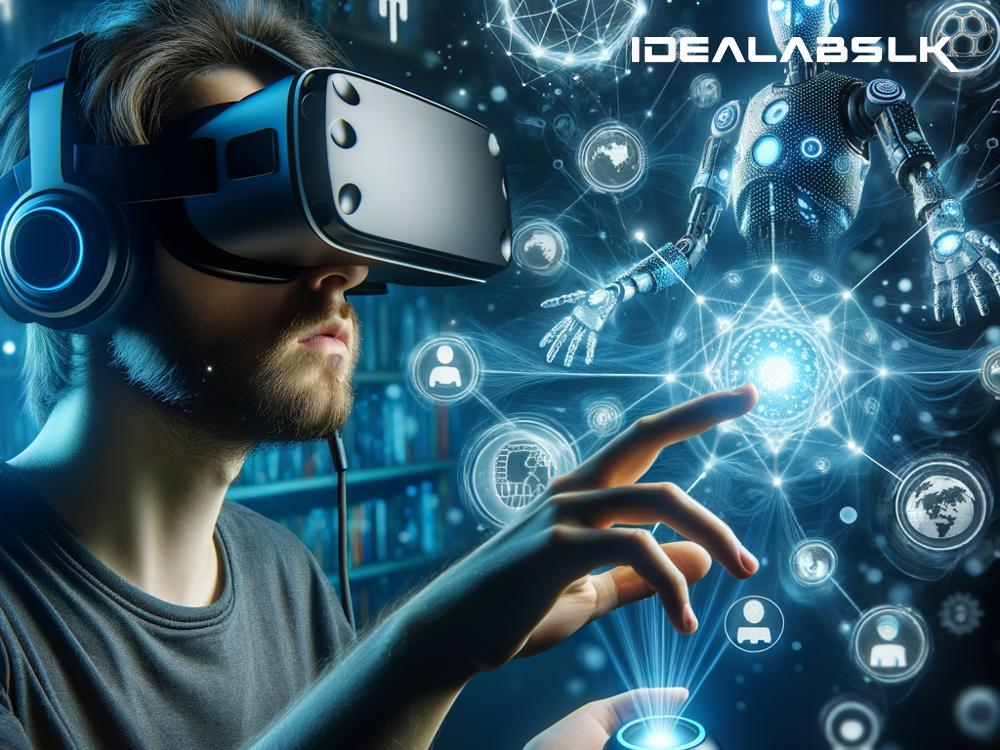As we edge closer to 2025, the thrilling intersection of Artificial Intelligence (AI) and Virtual Reality/Augmented Reality (VR/AR) technologies is set to redefine the landscape of gaming. These advancements are not just about better graphics or more immersive worlds; they are about creating smarter, more intuitive interactions and achieving seamless integration between the digital and real worlds. Let's explore how AI will significantly impact the future of VR/AR games, making experiences more lifelike, personalized, and effortlessly integrated into our daily lives.
The Birth of Smarter Interactions
Imagine stepping into a game where the characters don't just follow a script but can learn and react to your actions in real-time. Thanks to AI, this is becoming a reality. Characters in VR/AR games of the future will possess the ability to learn from the player's behavior, create unique responses, and evolve over time. This means no two gaming experiences will be exactly the same, as the game adapts to you, offering a truly personalized adventure.
For instance, in an adventure game, the AI could learn that you prefer stealth over confrontation. Subsequently, the game might offer you more stealth-based missions or even adjust the behavior of in-game enemies to challenge your preferred style of play. These smarter interactions will enhance the feeling of being in a dynamic, responsive world, far beyond the static environments we're used to.
Real-Time Adaptation and Learning
AI will empower VR/AR games to modify environments and scenarios in real-time, based on the player's actions and preferences. Imagine playing a puzzle game where the difficulty level adapts to how quickly or slowly you solve challenges, always keeping you engaged but never overly frustrated. Or consider an educational VR app that gauges your learning pace and adjusts the content delivery speed accordingly, making learning an enjoyable, stress-free experience.
Enhanced Social Interactions
Virtual social spaces are set to undergo a revolution with AI-driven avatars that can simulate human emotions and gestures, leading to more natural and engaging interactions. These avatars could serve as companions, guides, or even opponents, providing a rich social fabric within the VR/AR ecosystem. The enhanced realism in interactions will forge deeper connections between players, bridging the gap between virtual and real-world social experiences.
Seamless Integration into Everyday Life
As we look towards 2025, the distinction between digital and physical realms will continue to blur, thanks in part to AI. AR games, in particular, stand to benefit from this, as they overlay digital content onto the real world. Advanced AI algorithms will enable these games to understand and interact with real-world objects and environments intelligently. For example, an AR game might turn your living room into an alien landscape, accurately mapping the digital world onto physical space, including recognizing and utilizing furniture and other objects as part of the gameplay.
Imagine wearing AR glasses that bring game elements into your daily commute, turning an otherwise mundane activity into an interactive gaming experience. This level of seamless integration will make gaming a more natural part of our daily lives, breaking down barriers between the digital and physical worlds.
Accessibility and Inclusivity
AI is also set to make VR/AR gaming more accessible and inclusive. Voice recognition, natural language processing, and AI-driven adaptation will allow players with different abilities to enjoy gaming experiences tailored to their needs. Games could automatically adjust to accommodate visual impairments, hearing difficulties, or mobility challenges, ensuring everyone can partake in the fun.
Conclusion
As we look forward to 2025, it's clear that AI will play a pivotal role in transforming VR/AR games. Through smarter interactions, real-time learning and adaptation, enhanced social connections, and seamless integration into everyday life, gaming is poised to become more immersive, personalized, and inclusive than ever before. This evolution will not only redefine entertainment but also education, social interactions, and our overall relationship with technology. The fusion of AI, VR, and AR holds the promise of unlocking untapped potential in gaming, making the virtual worlds of the future places we'll love to explore, learn in, and connect with others. The future of gaming is bright, and it's intelligent.

